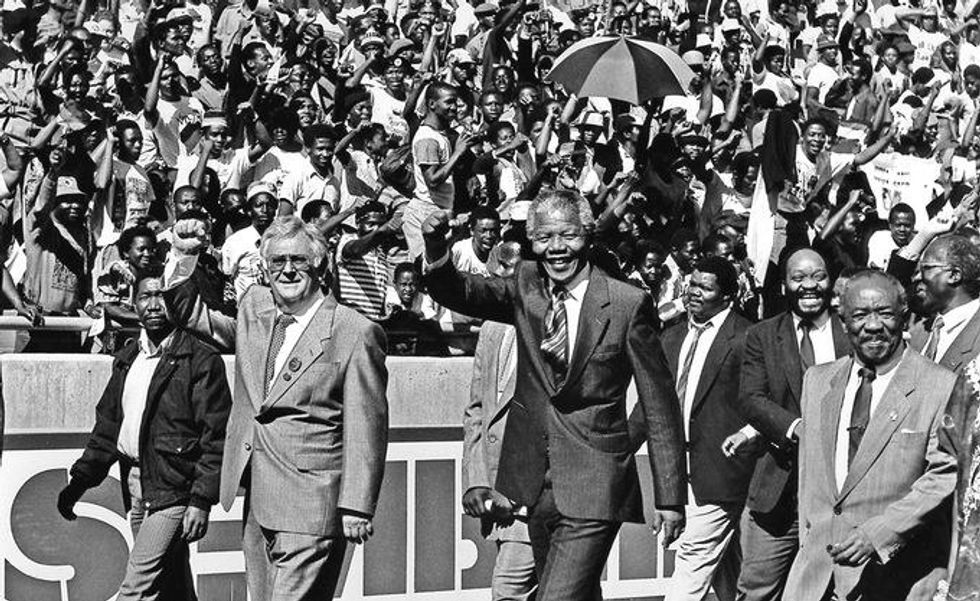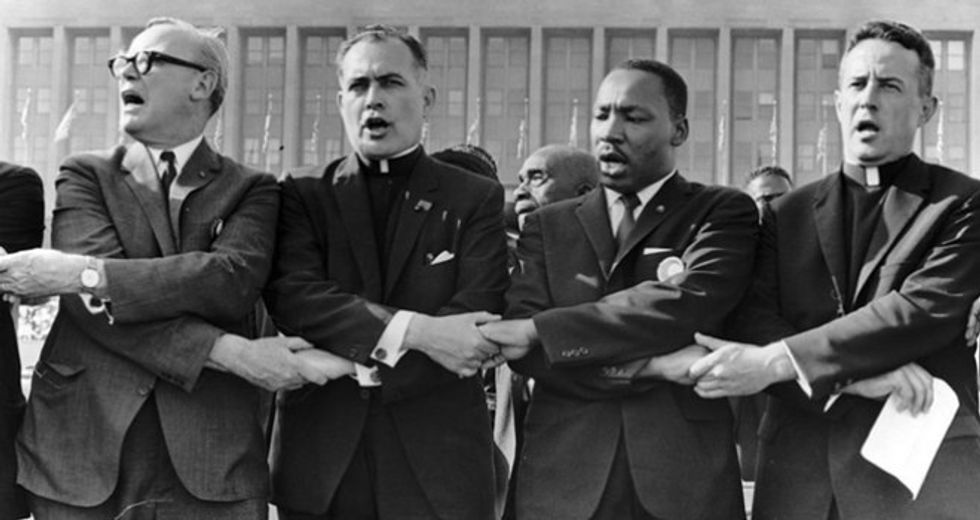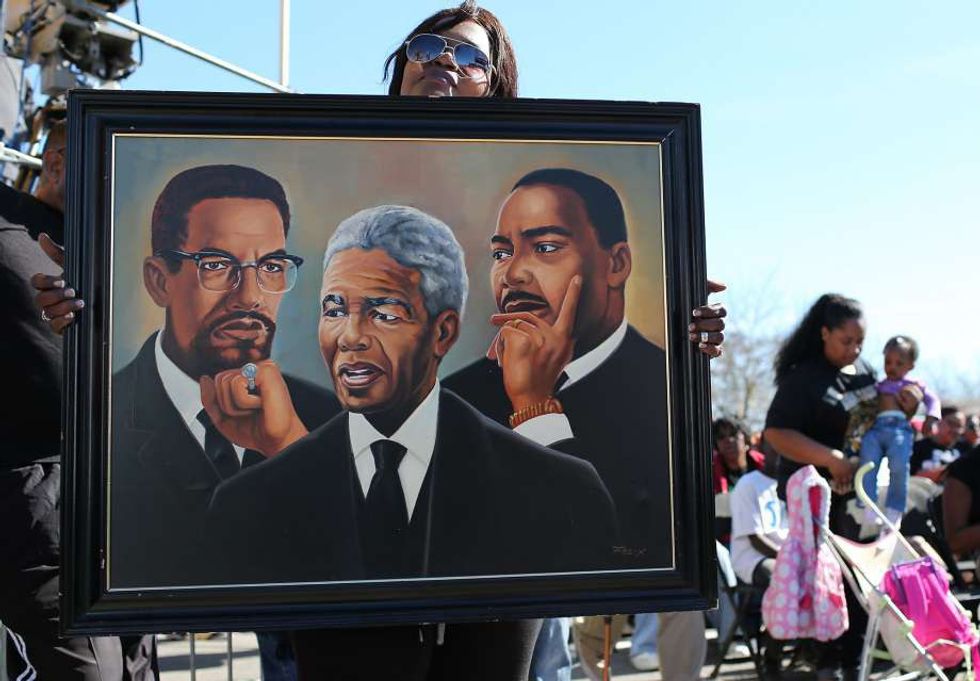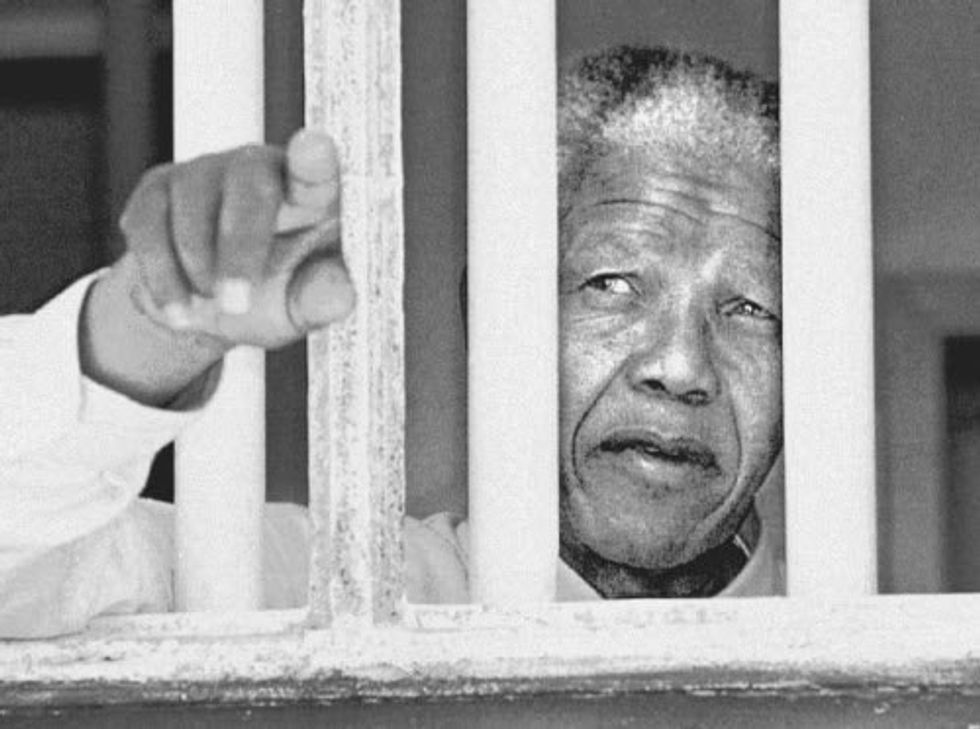In Martin Luther King’s, “Letter from a Birmingham Jail” (1963) and Nelson Mandela’s “The Rivonia Trial” (1964), we can see some of the best writings ever about fighting racial and social injustice in times of great struggle. I am inspired both of these writings, and I highly recommend you check them out.
In Mandela’s "Rivonia Trial," he talks about the socio-economic differences of the whites living in society to Africans, trying to defend himself and his followers in acts of destroying property.
“The African National Congress was formed in 1912 to defend the rights of the African people which had been seriously curtailed by the South Africa Act, and which were then being threatened by the Native Land Act," Mandela writes. "For thirty-seven years — that is until 1949 — it adhered strictly to a constitutional struggle. But White Governments remained unmoved, and the rights of Africans become less instead of becoming greater.”
The South African Act united the South African Providences together and the Native Act creating apartheid by giving the white population more than two-thirds of the region.
In 1963 King said, "Whatever affects one directly, affects all indirectly. Never again can we afford to live with the narrow, provincial 'outside agitator' idea. Anyone who lives inside the United States can never be considered an outsider anywhere within its bounds.”
King talks about how whites inside of the United States see African Americans as though they were the enemies from an outside country instead of caring for them like American citizens. This is why they could not vote. He wanted people of all colors to look at themselves, not as the ethnic group they were a part of but as human beings.
The second similarity is their motive for fighting against injustice in their societies.
Mandela states, “In my youth I listened to the elders of my tribe telling stories of the old days. Among the tales they related to me were those of wars fought by my ancestors in defense of the fatherland. I hoped then that life might offer me the opportunity to serve my people and make my own humble contribution to their freedom struggle."
King said, in a similar quote, “I am in Birmingham because injustice is here. Just as the prophets of the eighth century B.C. left their villages and carried their 'thus saith the Lord' far beyond the boundaries of their home towns, and just as the Apostle Paul left his village of Tarsus and carried the gospel of Jesus Christ to the far corners of the Greco-Roman world, so am I compelled to carry the gospel of freedom beyond my own home town. Like Paul, I must constantly respond to the Macedonian call for aid.”
I think the main differences between these two men is the way they carried out their plan for achieving civil rights. Examples of Mandala’s tactics are in this quote during the trial — “We chose to defy the law. We first broke the law in a way which avoided any recourse to violence: when this form was legislated against, and the government resorted to a show of force to crush opposition to its policies, only then did we decide to answer violence with violence.”
After South Africans peacefully protested at the South African township of Sharpeville with around 5,000 to 7,000 protestors there, police opened fired into the crowd killing 69 people. This is known as the Sharpeville Massacre. In an LA Times article, it is said most experts believe that if the African National Conference didn’t push for violence at a certain point, then apartheid in South Africa would go on even to this day. King believed that he would achieve justice through non-violence like Gandhi did in India in 1947. He states, “In any nonviolent campaign there are four basic steps: collection of the facts to determine whether injustices exist; negotiation; self-purification; and direct action. We have gone through these steps in Birmingham."
In America at this time, there was another activist named Malcolm X, who was trying to achieve civil rights in the form of Pan-Africanism with violence. King was angry at him for this and felt like the entire struggle of civil rights will be destroyed with this kind of mentality. Even though there was a point in which King did threaten to use violence and a good amount of his supporters became violent, Malcolm X’s approach to equal rights was more like Mandela’s in the form of violence.
The final difference between the two leaders is the motive of religion and revolution. In King’s case, even though his main goal was to end Jim Crow laws in the Southern United States, he was highly influenced by his religion. In the entire campaign, he was the leader of the Southern Christian Leadership Conference and surrounded himself with religious leaders making this a religious issue as much as a racial one.
King even said, “I must make two honest confessions to you, my Christian and Jewish brothers. First, I must confess that over the past few years I have been gravely disappointed with the white moderate. I have almost reached the regrettable conclusion that the Negro's great stumbling block in his stride toward freedom is not the White Citizen's Councilor or the Ku Klux Klanner, but the white moderate, who is more devoted to 'order' than to justice; who prefers a negative peace which is the absence of tension to a positive peace which is the presence of justice; who constantly says: 'I agree with you in the goal you seek, but I cannot agree with your methods of direct action'; who paternalistically believes he can set the timetable for another man's freedom; who lives by a mythical concept of time and who constantly advises the Negro to wait for a 'more convenient season.'"
King thought if he made his movement more about religion than race then he would win over the white moderates who he felt was the most important group to win over in the fight for equality. In the end, he did get those white moderates to side with him.
With Mandela, he focuses a lot on the economics of both the whites and Africans living in the region. He states, “the complaint of Africans, however, is not only that they are poor and the whites are rich, but that the laws which are made by the whites are designed to preserve this situation." Mandela basically asks the court that how in the world can someone have economic freedom when they do not have political freedom. In Mandela’s opinion, it is impossible.
Mandela famously said this at the end of the speech, “During my lifetime I have dedicated my life to this struggle of the African people. I have fought against white domination, and I have fought against black domination. I have cherished the ideal of a democratic and free society in which all persons will live together in harmony and with equal opportunities. It is an ideal for which I hope to live for and to see realized. But, my Lord, if it needs be, it is an ideal for which I am prepared to die.” Mandela would spend 27 years of his life in jail and would become South Africa’s first president in 1994.
These two activists are very much alike in what their core main goal was ending some form of racism in their country. One was met with extreme violence and chose to answer it with violence, the other was met with violence and maintained his non-violent stance. Both paid a heavy price for their leadership; one with his life, the other with decades in jail. In the end, both were triumphant in their goals, but it took many years and many lives and the struggles still continue.























